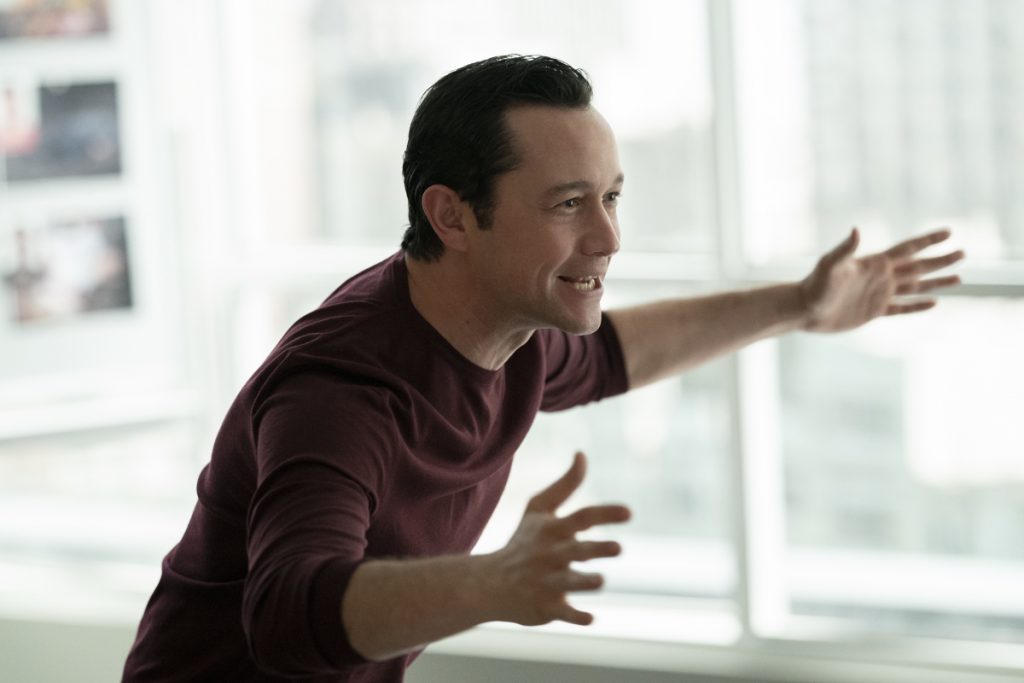Billions, now in its sixth season, tracks the workings of the world of high finance and risky investments – wheeling, dealing, and stealing. Axe Capital is a place where greed is is a currency and a means of survival. Although created by Brian Koppelman, David Levien, and Andrew Ross Sorkin, writer Beth Schacter was often been a part of the show mainly in a consulting capacity. After writing and producing during season 5, she helmed season 6.
Billions With A “B”
“We knew that Axe (Bobby Axelrod played by Damian Lewis) was leaving the show at the end of season 5 and Michael Prince (Corey Stoll) would take over the reins of Axe Capital,” said Schacter. This was a seismic shift in the momentum of Billions.
Billions is set in a world few people get to experience first hand, let alone fully comprehend. “We asked questions in the writers’ room about this rarefied world,” said the TV writer. “We dug into the idea of Michael Prince and the self-proclaimed benevolent billionaire,” she continued. The writers knew that they struck storytelling gold as they navigated being ethical in an unethical world. How does the act of giving square with having so much? Schacter believes this simmering moral conundrum kept the show alive, vibrant, and interesting. “This brought out the depth in the other characters.”

Beth Schacter
Balancing the history of Billions while creating an ongoing legacy that has organically evolved was a key consideration for Schacter. “There are certain things that make a Billions script, Billions. There’s a certain tempo, attitude, references to pop culture, a knowledge base, a quickness to their thinking, obsession to being at war with each other and winning.”
Once these stable elements are in place and the characters are all competing at the top of their game, “the script tells you what to do,” she continued.
Can billionaires be ethical?
Billions is a deeply layered show that mines many corners of the investment world. It explores greed, power, survival, and competition. At its heart, it’s a story about ethics. Can billionaires be givers when they take so much? Should/ could they be constrained by government regulators like Chuck Rhoades (Paul Giametti). The characters in Billions are products of their own egos.
“We’re really trying to get inside the minds of people that become billionaires and what it looks like when they go to battle. Who is the type of person attracted to that kind of power, what do they do with it, and why do they want to take it away from each other?” said Schacter. Billions explores what motivates and animates them.
The battles that occur in Billions explore the humanity of the characters. Battles between regulators, internal, and external competitors. Beth claims that the actors bring the most humanity to the characters. “It’s like playing in a band and you’re writing a song. When the band takes over the song it’s more than the notes on the page.” She compares the creative process to an actor taking on a Shakespearean role and infusing it with life.
Super Pumped: The Battle For Uber
Beth Schacter wrote, co-executive produced and c0-showran the anthology series called Super Pumped about businesses that significantly changed our culture. The first season was the Travis Kalanick (played by Joseph Gordon-Levitt) story, who headed Uber, one of the most innovative and destructive unicorns of our time. Uber is a verb, a noun, and a cultural statement. Is it a transportation company bound by the rules of the taxi cab industry or a tech company that makes its own rules?
Super Pumped is based on a novel by Mike Isaac which inspired the limited series. Travis Kalanick is a polarizing figure – a heroic disruptor to some and toxic CEO to others. “If you’re going to write about someone so dynamic and compelling, try to get a real sense of who Kalanick is,” advised Schacter. Author Mike Isaac also spent considerable time in the writers’ room to offer his expertise on all things Uber.

Travis Kalanick (Joseph Gordon-Levitt). Photo by Elizabeth Morris/SHOWTIME
Since Travis’ character is already firmly established, a large part of the writing process is instinctual – writing from the gut to draw out the strongest emotional aspects of the story. “If it moves you, it will probably move me.”
Beth Schacter and her team also referenced articles and social media posts to augment the novel.
Uber took on an industry that needed to be disrupted
Similar to billionaires, tech disruptors don’t see the world in the same way as most people. They pride themselves on being visionaries, kooks, prophets, and change agents. But Travis Kalanick took on an industry that needed disrupting. “Travis was right,” exclaimed Beth. “The taxi industry of most big cities were blocking the financial well-being of their drivers through an extortionate medallion system. They were a mafia in their own right, you could never get away from under their thumb and they needed to be disrupted.” Beth claimed that T.K. didn’t realize that he would ironically become the fascist dictator that he was trying to take down.
On a broader scale, Super Pumped examines our responsibility as a culture to take on “those who have people in their pockets or under their thumbs.” Uber was forming their brand identity on the back of corruption in the taxi industry.
Travis Kalanick is a man of the people (or drivers). Every action he took initially focussed on bettering the financial positions of Uber drivers – until he too was eventually seduced by the wrongs he was trying to stamp out. Many disruptors begin their journeys with the best of intentions, but become something else.
Much like Beth Schacter’s writing style, she follows her nose and gut for a good story. She looks for the potential for conflict in the material she reads. She also needs to visualize an ongoing television show before deciding if it’s worth developing. “I need to see at least a hundred episodes before I decide if it’s a TV series.”
“Successful TV writers have a great balance of vision and sweat. They also have a strong voice.” A good writer will place their voice over the top of every show they’re writing for.
